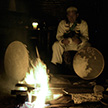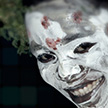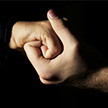Speak to Your Doctor
If you are not used to being in the jungle, your body is about to be stressed in new ways -- novel food, unaccustomed heat and humidity, unfamiliar pathogens. There is nothing in the jungle, of course, that you can’t handle; people do it all the time. But, unlike other travelers, you will be adding the extra stress of ingesting a powerfully psychoactive botanical with very intense physical effects. You should be in good physical condition to handle these stressors, and you should pay a visit to your doctor to make sure that you are.
This is especially important if you have any physical or psychological condition -- definitely including pregnancy -- for which you are currently under the care of a health professional. Tell your doctor that you are going to be taking ayahuasca or iboga, even if you fear the doctor will be disapproving. Provide your doctor with information about the physiological and psychological effects of the substance you will be taking. Such information is very important, especially if you are taking psychotropic medication such as an SSRI or an MAOI antidepressant, if you will be taking ayahuasca, or any medication that inhibits cytochrome P450, if you will be taking iboga. Don’t forget to add that these botanicals also induce physically stressful emetic and purgative effects, and that you will be in a jungle environment, perhaps far from definitive care, since these facts may also impact your current health situation.
Your health care provider may offer you persuasive reasons why such an expedition would be a bad idea at this time, and you may then decide to wait until your current condition has improved or resolved. It may also be that your doctor will see no significant problem in your taking ayahuasca or iboga, or may recommend some conditions that would increase your safety, or may be willing to modify your medication regimen temporarily to accommodate your intention.
Seeing your doctor and having a straightforward conversation will allow you to make informed decisions about the best way to make your journey as safe as possible.
Get inoculated
Many university health centers maintain travel immunization clinics that provide information, inoculations, and prescription medication for travelers, and are knowledgeable about current health conditions in the area where you will be going. These clinics are extremely valuable resources. If one is not near enough for you to visit, ask your doctor to contact one for a consultation. Bare in mind that in each country the services offering consultancy or inoculation can vary. Inform yourself about the centers available in your country.
You absolutely should have your tetanus inoculation up to date. Tetanus is an extraordinarily unpleasant way to die. It is 100 percent fatal, and 100 percent preventable by immunization. In the jungle, inoculation against the food- and water-borne hepatitis A virus -- usually spread by the fecal-oral route -- is also a very good idea. Inoculation against the hepatitis B virus may be indicated if you expect to be in contact with contaminated body fluids -- doing volunteer medical work, for example. Other inoculations may include typhoid, polio, diphtheria-tetanus, and measles-mumps-rubella, depending on your medical history and the current health conditions in the area where you are going. The clinics also have lists of inoculations that may be required for return to your own country.
Prescriptions
Another advantage of visiting a knowledgeable travel clinic is that you can get a prescription for an appropriate antimalaria drug to take while you are in the jungle. Note that some antimalarial medications, such as Lariam, have been associated with neuropsychiatric effects -- including anxiety, hallucinations, depression, unusual behavior, and suicidal ideation -- that might be particularly problematic if you are going to take ayahuasca or iboga. This again is a subject to be discussed with your doctor.
A travel clinic can also give you a prescription for an antibiotic, such as Ciprofloxacin, for the relief, if necessary, of urinary tract infections, skin infections, intractable diarrhea, and other bacterial conditions that might otherwise spoil your trip. Note that in many third-world countries, antibiotics and other pharmaceuticals that require prescriptions in the US or EU may be available over the counter, but quality is not guaranteed.
Learn in advance
Learn first aid
Do not assume that emergency medical care will be available if you cut yourself with a machete, get burned by a kerosene lamp, suffer heat stroke, or lose a tooth filling. A good first aid course will give you the basic skills and confidence to handle these sorts of medical emergencies and -- this is important -- teach you how to pack a medical kit appropriate both for your destination and your level of skill.
I especially recommend that you invest a weekend in a good wilderness first aid course. A WFA course is designed to teach improvisation and adaptation where medical supplies are unavailable and you are far from definitive medical care -- precisely the situation in which you may find yourself. Such courses typically provide hands-on training in realistic simulations that will give you the skills and confidence to deal with a jungle emergency.
Learn about where you’re going
The more you know, the safer you are, and the more you will benefit from your experience. We recommend reading at least one book on rainforest wildlife, so that you are aware of what plants and animals are generally safe -- most of them -- and which are really dangerous -- very few, but important to know about. We recommend too that you read about the culture of the area where you are going. This means its material culture -- how people live, what food they eat and how they gather it, the sorts of houses they live in and how they build them, what they do for recreation.
And, most important, this means learning about their shamanic and healing culture. Do not naively assume that mestizo and indigenous ideas about the nature of disease and the way to cure it are the same as yours. They are not. Being educated can help prevent misunderstandings, and increase your appreciation for the unique healing culture in which you will participate.
Hygiene & Food
Maintain sanitation
In the jungle, scrupulous cleanliness is the key to a healthy trip. You should bring lots of alcohol-gel hand sanitizer and some means to purify your drinking water. Even when you get water through a pipe, the quality of the water depends on where the water comes from and whether the pipe has any cracks or leaks. While bottled water is increasingly available, sometimes it is not, and sometimes the bottles, if not brought to you sealed, have just been filled with tap water. And don’t forget that ice is simply unpurified water that has been frozen.
If you cut yourself, keep the wound covered and scrupulously clean. If you get a blister, do not break it; cover it with a blister pad and let it heal. Use your alcohol-gel hand sanitizer before you eat. Do not brush your teeth or rinse your toothbrush with tap water, but rather with water that you have purified.
Watch what you eat
As you travel, you will find many wonderful things to eat and new foods to try. Reputable retreat centers will have clean kitchen conditions and bottled or purified water available for their guests, and will provide the type of food suitable when drinking ayahuasca or preparing for the Iboga initiation.
On the road, however, a little discernment can help prevent gastrointestinal infections transmitted by the fecal-oral route. You can safely eat raw fruits that you can peel and food that has been thoroughly cooked and served hot. Even in fancy restaurants, ask for bottled water without ice. Along the coast, ceviche -- spiced raw fish marinated in citrus juices -- is a special treat, as long as everyone who has handled it has washed their hands after using the toilet.
Safety tips
Secure your belongings
In most parts of South America or Central West Africa you are fabulously rich. You have a camera, a cell phone, a quality backpack, really good shoes, and, seemingly, a lot of cash. There are, unfortunately, people who will try to steal these things from you, even in the jungle, and some may even be willing to harm you in the process.
As always, thoughtful preparation is key. Buy and use a money belt. Secure your bags with quality locks. Consider getting anti-theft gear such as a Pacsafe bag protector for your backpack. Get waterproof zip-lock bags for your passport and other irreplaceable papers. A small rubber doorstop can help you get a good night’s sleep in a strange hotel. Keep copies of your passport and credit cards in a separate and secure location. Leave your itinerary behind with family and friends, and send regular emails so that people at home know where you are, and will be aware when you are late or missing.
Make sure you have the telephone number of your home country’s embassy and its nearest consulate. US citizens can also register their trip online with the Department of State so that the embassy knows of your presence in a country, which can be especially helpful when traveling in dangerous areas or in the event of a natural disaster.
The rest is just ordinary common sense. Leave your jewelry and expensive watches at home. Be careful where you go, especially in large cities at night. Avoid making phone calls or texting as you walk, so that you do not look distracted and therefore vulnerable. Don’t keep all your cash in one place. If you are going shopping, keep just enough cash for your immediate purchases in your pocket and the rest hidden in your money belt, and never remove money from your money belt in view of anyone. Do not use gypsy taxicabs. Travel with a friend. Do not accept drinks from strangers. Make sure no one is standing right behind you when you use an ATM.
Use only government-authorized money changers, and do not hand over your dollars until you have the local currency in your hand. Do not follow strangers into dark alleys -- or along remote jungle paths -- no matter what delights you are promised. Be at least as cautious as you would be in a rough neighborhood in any major city.
Be with people you know and trust
Ayahuasca tourism has become big business, and the increased popularity of iboga attracts opportunism; there are a lot of frauds out there. Even shamans who have apprenticed and undergone the restricted diet with a number of plants may seek to exploit the tourist market, and there have been reports, often credible, of both financial and sexual abuse of participants.
Again, preparation is the key to a safe trip. It is a good idea to make arrangements for your retreat before you leave home. Use all the resources of the Internet to research possible retreat centers, and use social media to ask for recommendations. You will want to be where you feel safe, and you should expect a reputable retreat center to be forthright and responsive to your questions and needs.
Have an expeditionary attitude
You are traveling in a third-world country. Things will go wrong. It will rain, transportation will be delayed, the side-release buckles on your backpack will break, you will be bitten by insects, and people you are counting on will not show up when you expect them to.
An expeditionary attitude means being as prepared as possible for foreseeable emergencies, and being willing to improvise and adapt for everything else. Carry a few spare straps and buckles for your backpack. Bring sunscreen, insect repellant, and anti-itch cream so you don’t scratch your insect bites. Put together a good first-aid kit. Have travel insurance that provides coverage for emergency wilderness rescue and evacuation.
Most important, an expeditionary attitude means having a good sense of humor. Learn to enjoy waiting for a boat in the rain, to sit quietly and observe the life around you. When things go wrong, pitch in and help. Everything will work out. You may not wind up where you thought you were going, but you will wind up someplace interesting anyway. Think of the stories you will be able to tell your friends back home. Have fun. Above all, go with an open heart.
Disclaimer
ICEERS takes care to ensure that the information presented on this website is accurate at the time of its publication. However, over time new scientific and medical information becomes available, and laws and legal enforcement polices change. In addition, laws and legal enforcement policies governing the use of substances discussed on this website vary from jurisdiction to jurisdiction. The reader is advised to carefully consult appropriate sources for the most current information on scientific, medical, and legal issues. Material on this website is not intended to and should not be used as a substitute for personal consultation with knowledgeable physicians and attorneys.
The information on this website is offered for informational use only, and is not intended for use in diagnosing any disease or condition or prescribing any treatment whatsoever. The information on this website is not intended to encourage the use of ethnobotanicals. ICEERS specifically cautions against the use of ethnobotanicals in violation of the law, without appropriate professional guidance and monitoring, or without careful personal evaluation of potential risks and hazards. ICEERS specifically disclaims any liability, loss, injury, or damage incurred as a consequence, directly or indirectly, of the use and application of any of the contents of this website.





